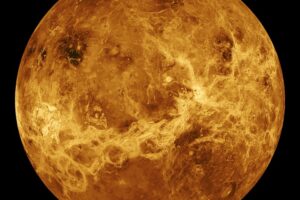Cosmic evolution is a captivating journey that takes us from the beginning of the universe to its eventual fate. From the explosive birth of stars to the eventual heat death of the universe, cosmic evolution tells a fascinating story of interconnectedness and constant change.
The process of cosmic evolution starts with the Big Bang, an event that occurred around 13.8 billion years ago and marked the beginning of the universe as we know it. In the aftermath of the Big Bang, the universe was a dense and hot environment filled with energy and particles. As the universe expanded, gravity began to act on matter, leading to the formation of galaxies, stars, and planets.
Stars, the building blocks of the universe, are formed from the gravitational collapse of clouds of gas and dust in interstellar space. These clouds heat up and start to glow, eventually becoming stars. Stars play a critical role in cosmic evolution by producing and recycling heavy elements necessary for the formation of planets and, eventually, life.
Throughout their lifetimes, stars undergo changes as they burn hydrogen in their cores through nuclear fusion to produce energy. Eventually, stars run out of fuel and undergo a supernova explosion, scattering heavy elements into space. These elements are then recycled into new stars and planets, continuing the cycle of cosmic evolution.
As stars age and die, they leave behind remnants such as white dwarfs, neutron stars, and black holes, which influence the evolution of galaxies and the universe. Black holes, in particular, have a powerful gravitational pull that shapes the development of galaxies and impacts the fate of the universe.
Galaxies, too, evolve over billions of years through mergers and interactions with other galaxies, leading to the formation of more complex structures. Our own galaxy, the Milky Way, is home to billions of stars and planets and is constantly evolving as new stars are born and old stars die.
Looking ahead, scientists predict that the universe will continue to expand at an increasing rate, driven by dark energy. As galaxies drift apart, stars burn out, and the universe approaches a state of heat death where all energy is evenly distributed and no more work can be done.
In conclusion, cosmic evolution is a compelling narrative that sheds light on the origins of the universe and our place within it. By studying the processes that govern the evolution of the cosmos, scientists can uncover valuable insights into the past, present, and future of the universe. Cosmic evolution reminds us of the interconnectedness of all things and the remarkable journey that has brought us to where we are today.






























Add Comment